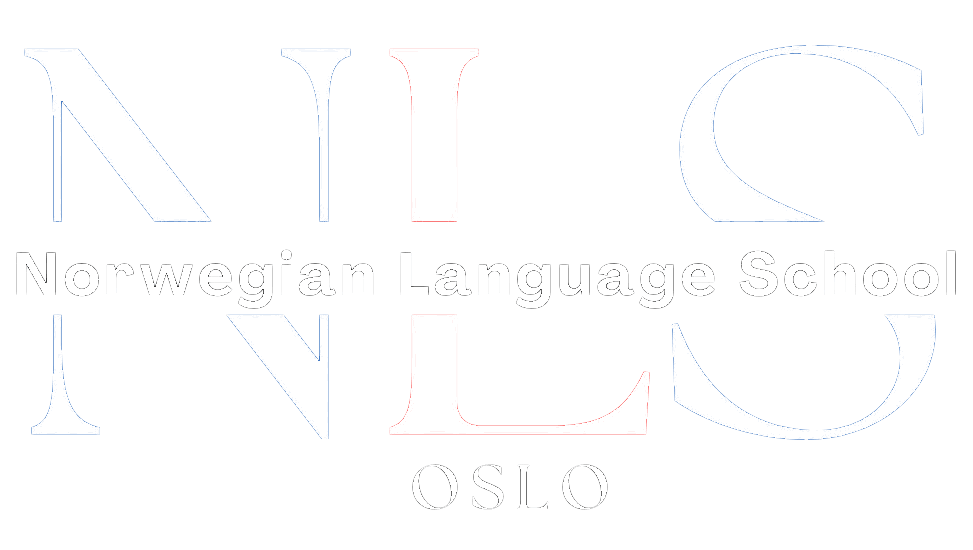

Speedy Norwegian Phrases: How to Speak Like a Native in No Time
Learning a new language can be a daunting task, but it can also be incredibly rewarding. Whether you are planning a trip to Norway, doing business with Norwegian companies, or simply want to expand your language skills, learning Norwegian phrases can be a great way to immerse yourself in the culture and connect with the locals. In this blog post, we will provide you with a comprehensive guide to mastering Norwegian phrases quickly and easily.
Table of Contents
ToggleWhy Learn Norwegian Phrases?
There are several benefits to learning Norwegian phrases. Firstly, it allows you to communicate with the locals when you travel to Norway. While many Norwegians speak English, especially in urban areas, knowing some basic phrases in their native language can go a long way in making connections and showing respect for their culture.
Secondly, if you are doing business in Norway, knowing some Norwegian phrases can help you build rapport with your colleagues and clients. It shows that you are making an effort to understand and adapt to their way of life, which can lead to stronger business relationships.
Common Norwegian Phrases for Everyday Use
In this section, we will cover some common Norwegian phrases that you can use in everyday situations. These phrases will help you navigate through daily interactions such as greetings and pleasantries, asking for directions, ordering food and drinks, and shopping.
When greeting someone in Norway, it is customary to say “Hei” (hi) or “God dag” (good day). To ask how someone is doing, you can say “Hvordan har du det?” (how are you?). If someone asks you the same question, you can respond with “Jeg har det bra” (I’m fine) or “Takk, bra” (thanks, good).
If you need directions, you can ask “Unnskyld meg, hvor er…” (excuse me, where is…) followed by the location you are looking for. Norwegians are generally helpful and will be happy to assist you.
When ordering food and drinks, you can say “Jeg vil gjerne ha…” (I would like to have…) followed by the item you want. For example, if you want a coffee, you can say “Jeg vil gjerne ha en kaffe, takk” (I would like to have a coffee, please).
When shopping, you can use phrases like “Hvor mye koster dette?” (how much does this cost?) or “Kan jeg prøve dette på?” (can I try this on?). These phrases will help you communicate with the shopkeepers and make your shopping experience easier.
Essential Norwegian Phrases for Travelers
If you are planning a trip to Norway, it is important to know some essential Norwegian phrases that will help you navigate through your journey. In this section, we will cover phrases for transportation, checking into a hotel, and emergency situations.
When it comes to transportation, you can use phrases like “Hvor er busstoppet?” (where is the bus stop?) or “Hvor går toget til…?” (where does the train go to…?). These phrases will help you find your way around the city and get to your desired destination.
When checking into a hotel, you can say “Jeg har en reservasjon” (I have a reservation) followed by your name. You can also ask for the key by saying “Kan jeg få nøkkelen?” (can I have the key?).
In case of an emergency, it is important to know some basic phrases. You can say “Hjelp!” (help!) or “Ring politiet!” (call the police!). It is also useful to know how to ask for medical assistance by saying “Jeg trenger legehjelp” (I need medical help).
Norwegian Phrases for Making Friends
If you want to make friends in Norway, it is important to know some phrases that will help you start a conversation and get to know people better. In this section, we will cover phrases for introducing yourself, asking about someone’s interests, and inviting someone to hang out.
To introduce yourself, you can say “Hei, jeg heter…” (hi, my name is…) followed by your name. You can also ask someone’s name by saying “Hva heter du?” (what is your name?).
To ask about someone’s interests, you can say “Hva liker du å gjøre på fritiden?” (what do you like to do in your free time?). This will help you find common interests and topics to talk about.
If you want to invite someone to hang out, you can say “Vil du være med å…?” (do you want to join me in…?) followed by the activity you have in mind. For example, if you want to go for a walk, you can say “Vil du være med å gå en tur?” (do you want to join me for a walk?).
Norwegian Phrases for Business and Work
If you are doing business in Norway or looking for a job there, it is important to know some phrases that will help you navigate through professional situations. In this section, we will cover common phrases for meetings and negotiations, job interviews, and business etiquette in Norway.
In meetings and negotiations, it is important to be polite and respectful. You can start the meeting by saying “God morgen” (good morning) or “God ettermiddag” (good afternoon). To express your opinion, you can say “Jeg er enig” (I agree) or “Jeg er uenig” (I disagree).
In job interviews, it is important to be prepared and confident. You can start by introducing yourself and explaining why you are interested in the position. You can also ask questions about the company and the role to show your interest and enthusiasm.
In terms of business etiquette, Norwegians value punctuality and professionalism. It is important to arrive on time for meetings and dress appropriately for the occasion. It is also customary to shake hands when greeting someone in a business setting.
Norwegian Slang and Informal Expressions
Norwegian slang and informal expressions can add a fun and casual touch to your language skills. In this section, we will explain what Norwegian slang is and provide examples of commonly used slang phrases.
Slang is a type of language that is informal and often used by specific groups of people or in certain contexts. It can be a fun way to connect with locals and show that you are familiar with the language beyond the basics.
Some commonly used Norwegian slang phrases include “Kul” (cool), “Fett” (awesome), “Dritbra” (really good), “Kjedelig” (boring), and “Tøff” (tough). These phrases can be used in casual conversations with friends or peers.
Tips for Pronouncing Norwegian Phrases Correctly
Norwegian pronunciation can be challenging for non-native speakers, but with some practice, you can master it. In this section, we will explain some pronunciation rules and provide tips for improving your accent.
Norwegian has several unique sounds that may not exist in other languages. For example, the letter “ø” is pronounced like the “u” in “hurt”, while the letter “å” is pronounced like the “o” in “hot”.
To improve your pronunciation, it is helpful to listen to native speakers and imitate their sounds. You can also practice reading aloud and recording yourself to compare your pronunciation with that of native speakers.
Practice Exercises for Improving Your Norwegian Speaking Skills
To improve your Norwegian speaking skills, it is important to practice regularly. In this section, we will provide some suggestions for practicing Norwegian phrases and recommend resources for learning Norwegian online.
One way to practice is to find a language exchange partner who is a native Norwegian speaker. You can meet up with them and have conversations in both English and Norwegian to improve your language skills.
Another way to practice is to watch Norwegian movies or TV shows with subtitles. This will help you familiarize yourself with the language and improve your listening comprehension.
There are also several online resources available for learning Norwegian. Websites like Duolingo and Babbel offer interactive lessons and exercises that can help you learn and practice Norwegian phrases.
Mastering Norwegian Phrases in No Time
Learning Norwegian phrases can be a fun and rewarding experience. Whether you are planning a trip to Norway, doing business with Norwegian companies, or simply want to expand your language skills, knowing some basic phrases can go a long way in connecting with the locals and immersing yourself in the culture.
In this blog post, we have provided you with a comprehensive guide to mastering Norwegian phrases quickly and easily. We have covered common phrases for everyday use, essential phrases for travelers, phrases for making friends, phrases for business and work, slang and informal expressions, tips for pronunciation, practice exercises, and resources for learning online.
Remember, learning a new language takes time and practice. The more you immerse yourself in the language and culture, the faster you will progress. So keep practicing, keep learning, and soon enough, you will be speaking Norwegian like a pro!
If you’re looking to expand your knowledge of Norwegian idioms related to the body, we have just the article for you. Discover the fascinating world of Norwegian language and culture with our comprehensive guide to body-related idioms. From head to toe, you’ll learn expressions that will help you understand and communicate more effectively in Norwegian. Check out the article here and start impressing your Norwegian friends with your newfound linguistic skills.

Norwegian A1-A2
Course Overview The Norwegian A1-A2 course is an online program focused on teaching essential Norwegian grammar and vocabulary. It includes a variety of materials and topics, with opportunities to interact with a Norwegian teacher entirely online. Curriculum Highlights The course covers key areas such as grammar and vocabulary and topics such as family, daily life, education, work, traditions, and leisure activities. Who Should Enroll? This course is perfect for beginners or those at the A1 or A2 levels who want to improve their Norwegian skills. What You Get Access to the full Norwegian A1-A2 course. A monthly 1-hour online conversation with a teacher. Many written and oral assignments. Comprehensive information on Norwegian grammar, Norwegian vocabulary and how to use them, important sentence structures, etc. Tips on additional resources to further enhance your Norwegian learning.
0 students enrolled
Last updated Dec 10th, 2024
If you want to learn Norwegian, you can register for classes here. We look forward to hearing from you and helping you become fluent in Norwegian.






